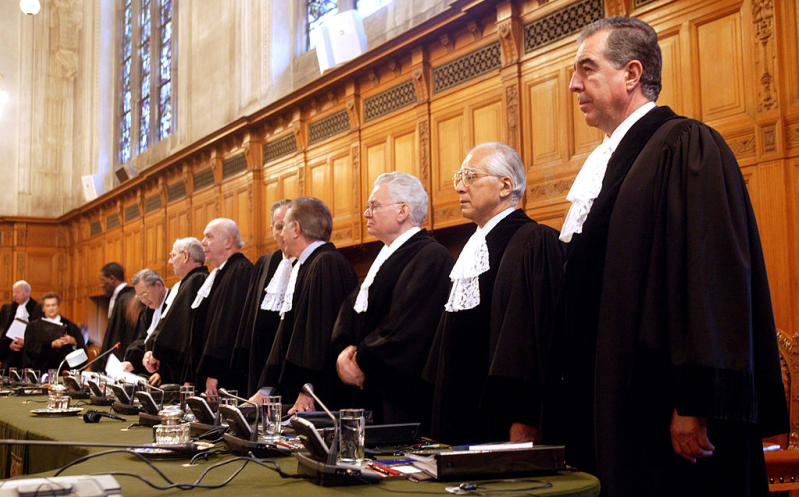
In a landmark legal development with global implications, the International Court of Justice (ICJ) issued an advisory opinion on July 23 that countries can be held legally accountable for breaching climate obligations under international law—a move that allows poorer nations to sue wealthier ones for contributing to climate change.
The ruling, requested by the United Nations, declares that environmental protection is a human right and that climate-related harms—such as rising seas, droughts and extreme weather—may infringe on fundamental rights like health, home, and family life.
The effect of climate change is also disproportionately affecting vulnerable groups including women, children and indigenous people, added the ruling.
While the advisory opinion is not legally binding, it could reshape international legal norms and empower vulnerable nations to seek justice. Christian leaders have called attention to the moral and spiritual urgency behind the ruling, emphasizing that the environmental crisis is not just legal but deeply ethical.
'Adverse effects of climate change may significantly impair the enjoyment of certain human rights'
The court affirmed that a clean and sustainable environment is an emerging human right, and existing human rights treaties should be reviewed to reflect this development.
“The Court is thus of the view that the adverse effects of climate change, including, inter alia, the impact on the health and livelihoods of individuals through events such as sea level rise, drought, desertification and natural disasters, may significantly impair the enjoyment of certain human rights,” stated the ruling.
The U.N. requested the court’s opinion following a decision by the U.N. General Assembly on March 29, 2023, asking for a clarification of the legal framework about the responsibilities of nation states in regards to the escalating climate crisis.
Concerning the consequences for states that fail to meet their climate obligations, the court affirmed that, where appropriate, each affected nation may individually hold accountable any state responsible for internationally wrongful acts that harm the climate system or the environment: “In the climate change context, the Court considers that each injured State may separately invoke the responsibility of every State which has committed an internationally wrongful act resulting in damage to the climate system and other parts of the environment.”
If several states are responsible for the same internationally wrongful act, the responsibility of each State may be invoked in relation to that act, the court added.
“Thus, the Court considers that the rules on State responsibility admit the possibility of determining the responsibility of States in the climate change context. Factual questions arising in the context of attribution and apportionment of responsibility are to be resolved on a case-by-case basis.”
Pacific nation urges legal accountability for climate impacts, documents local experiences
The Cook Islands, one of the Pacific nations most affected by climate change, submitted a 205-page report to the International Court of Justice as part of its deliberations on the issue. It marked the Cook Islands’ first-ever submission to the ICJ, underscoring the government’s deep concern over the impacts of climate change.
In a press release, the Ministry of Foreign Affairs and Immigration (MFAI) on the Cook Islands stated that the ability to submit a report “in its own right” thus “enabled the experiences and perspectives of Cook Islanders to be documented in this global process, which aims to shape the legal landscape on climate change, highlighting different obligations of States in shouldering responsibility of climate change-related impacts.”
“During the Cook Islands-hosted and chaired 52nd Pacific Islands Forum Leaders Meeting, Pacific Leaders encouraged all Pacific Island States to participate in the ICJ process, and we are very proud of the support we received nationally to do so," said MFAI Secretary Tepaeru Herrmann.
Contributions by local climate change experts, alongside "traditional leaders, youth, Government agencies, NGOs" and other experts, "was instrumental in enabling us to put together a Statement that reflects the climate change priorities of our ipukarea [ancestral homeland].”
Creation care leader says climate crisis is moral and spiritual, not just legal
Rev. Ed Brown, a longtime creation care advocate with more than 25 years in the movement—including two decades as founding director of Care of Creation and a decade as the first Lausanne Catalyst for Creation Care—shared a measured response to the ICJ ruling in comments to Christian Daily International.
Although not an expert on international law, Brown said it “certainly” sounded as though the ruling would result in “some complex cases and situations.”
“On the other hand, it is clear that the political system, international and domestic, is unable to respond to the climate situation,” said Brown, who now serves as Senior Associate for Churches and Theology at A Rocha USA. “Perhaps the legal world can do better.”
However, he confessed that he did not feel optimistic about the ruling leading to justice for the poorer neighbors of wealthier countries.
“Wealthy countries are quite good at ignoring obligations toward our neighbors, whether those obligations are political, legal or moral,” he pointed out.
“In fact, a strong argument can be made that the environmental crisis is at its root a moral and spiritual crisis for which political and legal solutions are nothing but band aids.
“This is just one more reminder that the call to the church to respond is urgent.”





